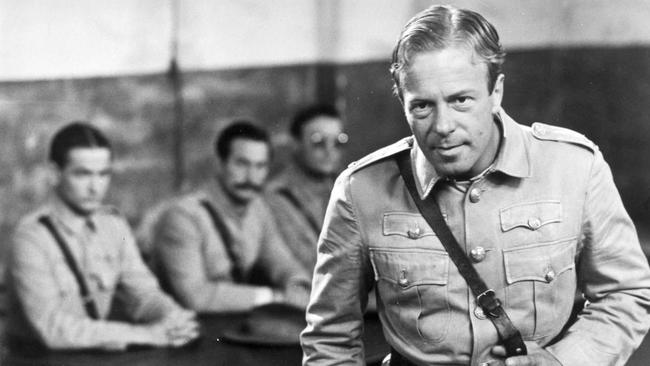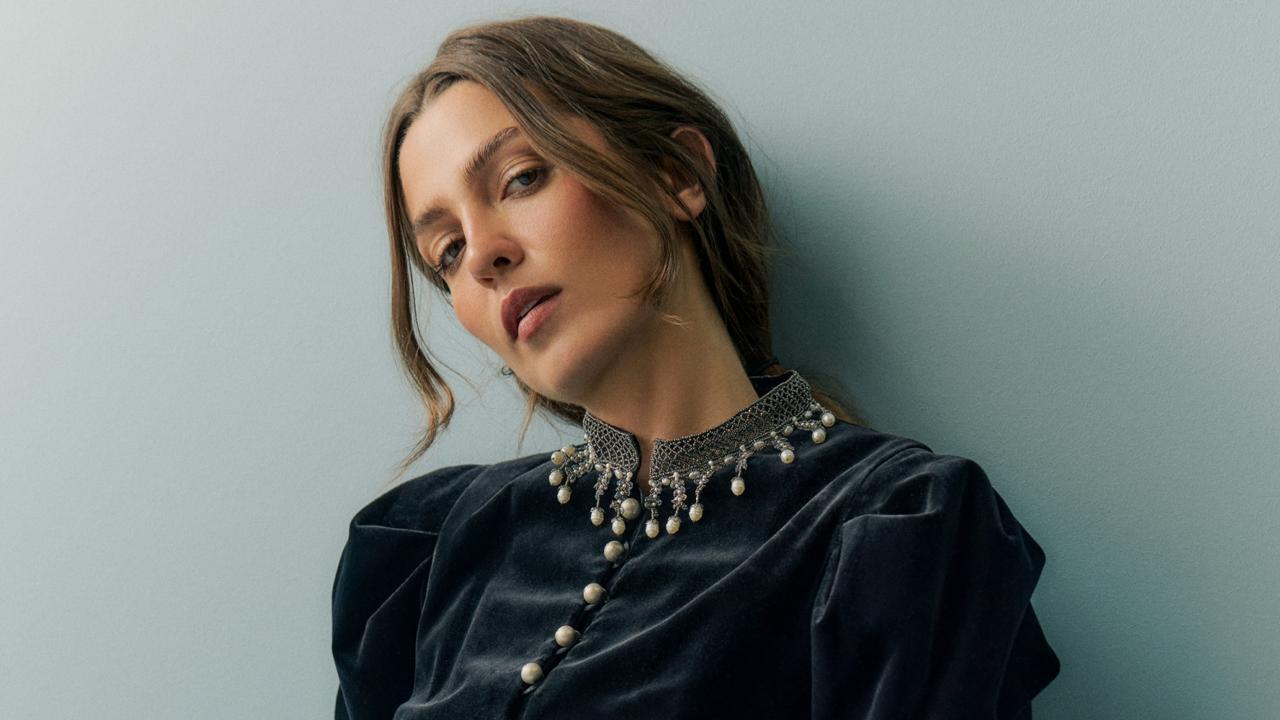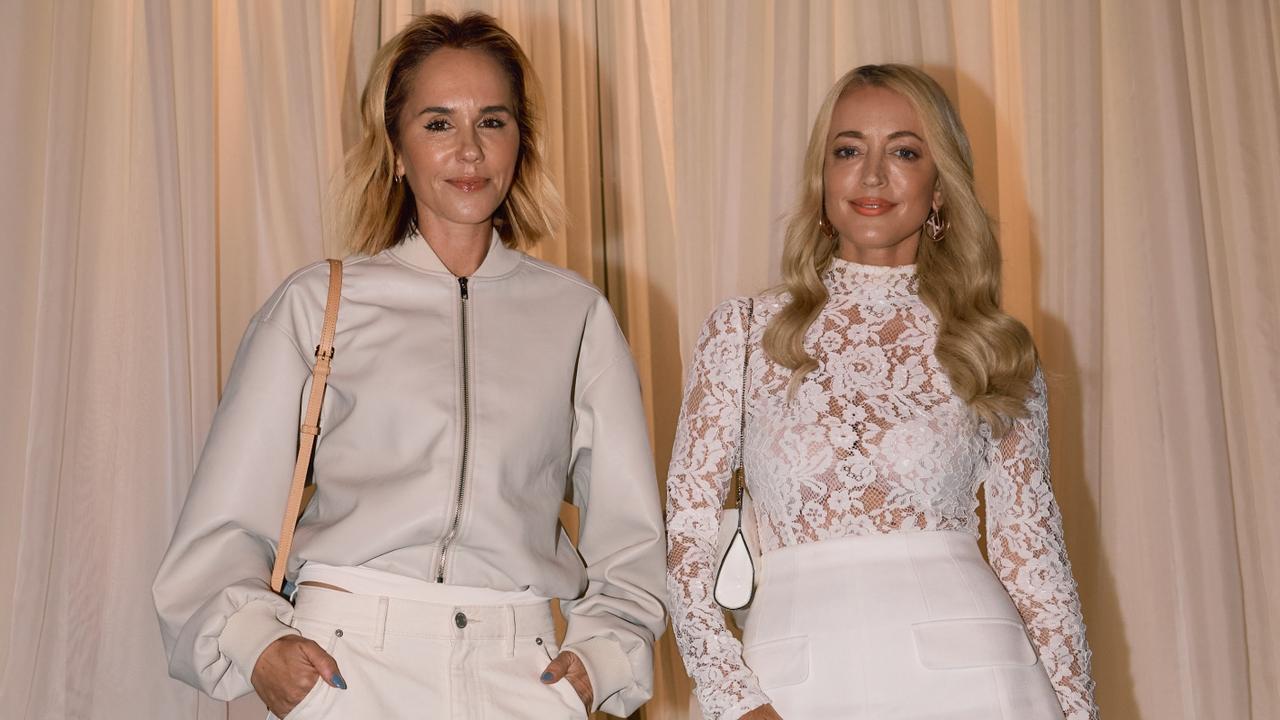Jack Thompson: ‘I don’t mind being the old man’
NOW 76, Australian acting legend Jack Thompson talks about his early days as a jackeroo, his famous nude centrefold and the unexpected richness of “old man” roles.

Stellar
Don't miss out on the headlines from Stellar. Followed categories will be added to My News.
ALMOST 40 years after Jack Thompson won Best Supporting Actor at the Cannes Film Festival for his iconic performance in Breaker Morant, the veteran actor returns to court this month for an Australian drama about a sexual-abuse victim betrayed by the Anglican church.
Based on real events that changed child-protection laws, Don’t Tell is the story about finding the courage to stand up and fight for justice. Now 76, Thompson talks to Stellar about his early days as a jackeroo in the Northern Territory, his famous nude centrefold and the unexpected richness of “old man” roles.
What’s the best thing about being 76?
The fact that I have got this far, really. I can remember my mother, many, many years ago saying, “The older you get, Jack, the more dead people you know.” At the time I thought, “By crikey, that’s a bit hard-nosed.” Now that I am 76, I realise that it’s not hard-nosed at all. It’s just a statement of the facts of life. I look around me and think, “Wow, it’s good to be here.”

What’s the worst?
Oh, the other thing that she said: “They don’t tell you, Jack, how painful it is.”
What gets you out of bed in the morning?
We are getting close to the same answer, I think. It’s life itself. I wake up and I am here. I love the early morning. The day is new, life is new, you have just stepped out into it.
What makes you really angry?
Intolerance. I get cranky about it, but I keep my mouth shut, of course, because you learn that, too, along the way. It would be intolerant of me to yell at them.
Of all the films you have made, what’s the one you are most proud of?
That’s really difficult – it’s a bit like children: which one’s the best? They have all got their own qualities. The one that is really strong in my mind is Breaker Morant, because that’s another courtroom drama like Don’t Tell. And because of the effect it had for the Australian film industry as a whole. It was the first time Australian feature filmmakers had won a prize at the Cannes Film Festival. It changed Bruce Beresford’s life and Bryan Brown’s life and my own. It changed the view of the Australian screen industry in the eyes of the English-speaking film world.

What about the movie you enjoyed making the most?
Wind, the picture about 12m yacht racing that we shot in Fremantle, Rhode Island and Hawaii. They had the real yachts and the real crew and I love sailing – all I had to do every day was go out there and sail. And my dialogue consisted of, “Lee-ho, lee-ho” – that’s about it.
You’ve worked with some great directors – Baz Luhrmann, Clint Eastwood, George Clooney, Steven Soderbergh, George Lucas, Bruce Beresford… Who is your favourite?
The next one who hires me!
Do you sometimes prefer working with young, up-and-coming directors, such as Tori Garrett [Don’t Tell]?
They are two very different things. Early in their career, young directors have an enthusiasm, an openness; they are prepared to reach out a little bit. And they are also very open to what you bring as an older, more experienced filmmaker.
Do you ever think about retirement?
I have, but I don’t. As a young actor, you get a lot of work presented to you. You’re the hero. Now you are a slightly older… oh, now you are the hero’s uncle. Then there’s not much at all, and then when you start to become truly senior, these roles are presented to you. Because there are more roles for truly senior actors than there are for that middle-age group. You are the old man now. And I don’t mind being the old man. It’s quite a good thing to be able to bring to the screen and they are interesting roles.

In the Top End you have an Aboriginal name, Gulkula.
That was given to me by the late Dr Yunupingu, the lead singer in Yothu Yindi. I was up there for the Garma festival. He was a teacher and he was very keen on bilingual education because they still speak their language there, Yolngu. But the administration at the time didn’t agree. I spoke up at this open forum, saying it was criminal to eliminate the bilingual education because you would end up eliminating the language, and in a non-literate culture, the language is the culture.
As a 15-year-old, you worked as a jackaroo. That intimate knowledge of being an Australian bushman must have helped with many of your roles?
It was fantastic because I had actually lived a lot of it. When I got to play Clancy [in The Man From Snowy River], I knew the kind of horse I wanted. I had been a drover at 15, I knew those endless plains, I’d lain there on my swag at night with this huge dome of sky and endless stars. I was able to identify with it very strongly.
Was it good to come back to that for Australia?
It was like stepping back in time. It was a different part of the territory, and Baz [Luhrmann] set Australia in the mid-1940s, so 10 years before I was there, but not much had changed. What was wonderful was having the stockmen – and the women – all Aboriginal. It was exactly like it was when I was 15. And it was great because I had really loved that time in my life.
Posing nude for Cleo magazine or being trampled by a herd of cattle in Australia. What was harder?
No question about that, mate, the herd of cattle. There were a lot of special effects there, but I had to spend a couple of days with one leg buried in the sand and a fake one sticking out the other side. My son came along when we were filming that, he might have been about 18 at the time. About lunchtime, he said, “Do you mind if I go home? I don’t think I can go on watching you dying.”

You can’t have realised at the time how much of an impact that centrefold would have. People still talk about it now. Would you still have done it had you known?
Oh yeah. On the part of Ita Buttrose and the magazine and myself at the time, it was an important thing to say, that nudity wasn’t a crime. Eighteen months before that, the play The Boys In The Band was closed down because there was nudity onstage. And less than six months before it came out, they blocked the entrance to the theatre for the musical Hair. It was at a time when that was a social issue.
Science student, jackaroo, hotelier, you’ve been in the army medical corps and you play a mean blues harp. If you hadn’t been an actor, how would you have earned your crust?
Probably as a musician because I just love music, and from very early on in my life I have liked playing with other musicians. Before there was any thought of me being an actor, I did think seriously about following that. But I never did. I became an army medical corps laboratory technician. The hobby that was acting took over, really.

Anything left on your bucket list?
I want to go on doing more of this. There must be a whole lot more good scripts out there. We are making a picture next year up in the middle of the Territory. I will be involved with that as an actor and an executive producer. It’s called High Ground [and reportedly co-stars David Gulpilil and Guy Pearce].
Do you believe films such as Don’t Tell can be a medium for social change/social justice?
I really believe they can. The thing about this film is that it’s a true story. It’s not over-dramatised. It brings a lot of focus to a social problem that is endemic, really, as we now see all over the world, regardless of the religion associated with the school, and regardless of whether it’s boys or girls. In this case, the law and justice end up being the same thing. You feel like cheering at the end. It’s not just a film about sex abuse, it’s a film about a win – for that young girl and the community.
Don’t Tell is in cinemas nationwide on May 18.
Originally published as Jack Thompson: ‘I don’t mind being the old man’


